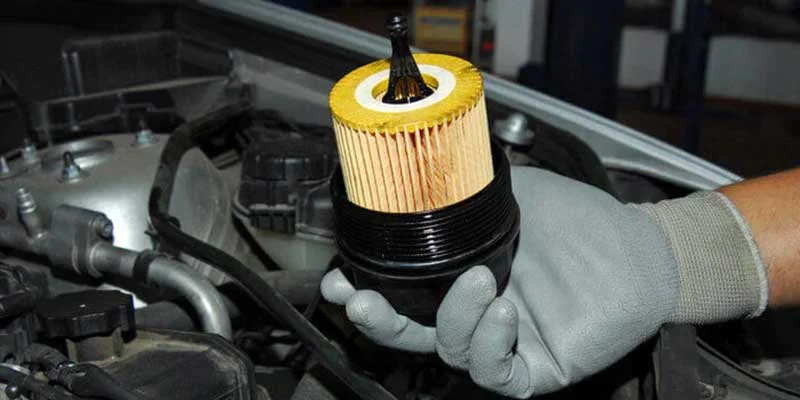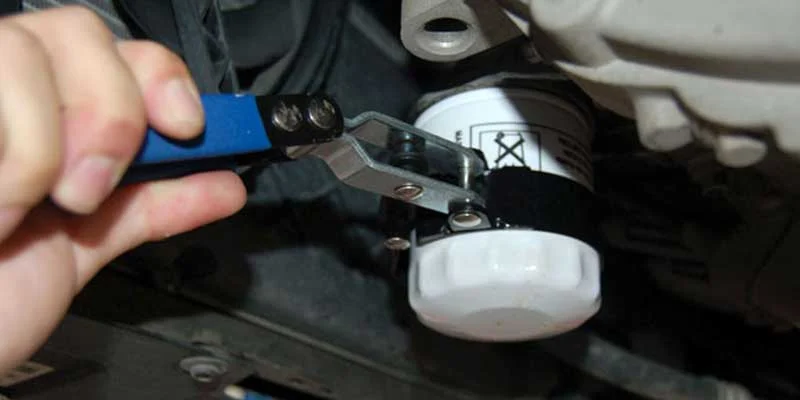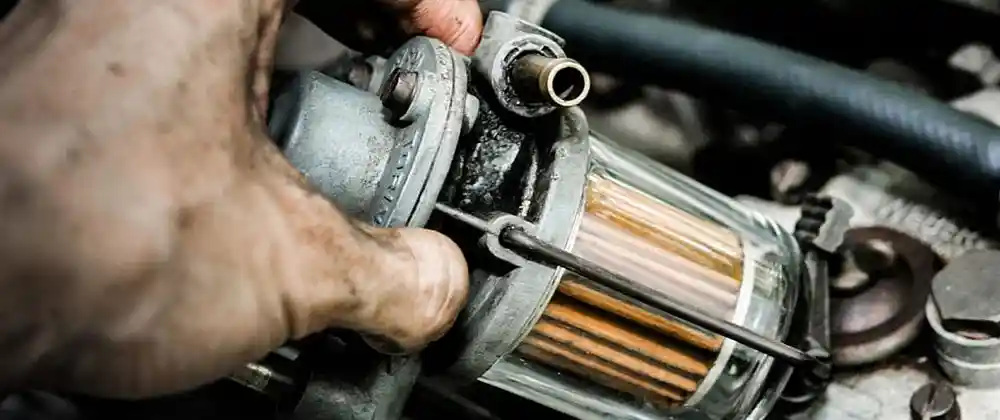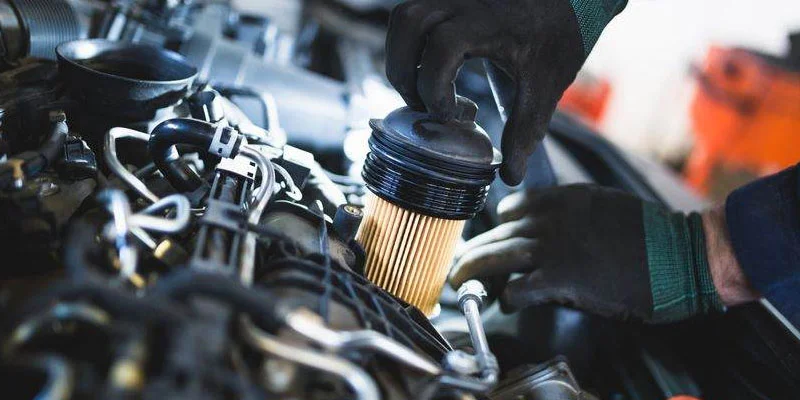All cars – except electric vehicles – have oil filters. Do you know, as far as routine maintenance goes, the engine oil filter require replacement at the same pace as the engine oil in your car does.
It is often confusing to find out when should I change my oil filter? Should I change it with every oil change?
Your mileage may vary depending on how often you change the oil. Hence you should consider oil change as per manufacturer recommendation. And this also raises the concern, if the filter is completely clogged. If yes, the mere oil change will not help. You must consider the oil filter replacement as well.
Most owners will usually need an oil change interval of about 5000 miles for conventional oil and upto 10000 miles for synthetic oils. Some new cars even feature maintenance reminders. So, every time you consider changing the oil, also check for the oil filters as well.
What is the Role of a Vehicle’s Oil Filter?
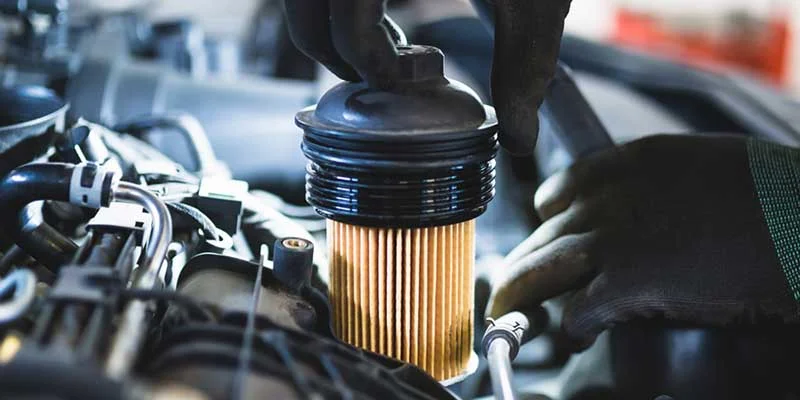
In general, the role of a filter is to prevent unwanted contaminations from passing on. They are designed with multiple layers of fabric, paper, and other material to refrain from passing through. Similarly, in automobiles, the role of Car’s oil filter is to capture the contaminants to withhold them from passing to the engine.
Without an oil filter, the dirt and other contaminated particles will travel freely inside the engine and clog it. This clogging leads to damage to the engine. Once the engine stops working, the vehicle will stop working too.
Besides refraining the waste from entering the engine, oil filters also maintain oil flow. As the filters can absorb a finite amount of pollutants, it fails to serve their purpose once the filter is saturated. Once the efficacy is lost, there are fair chances that these contaminants may cause engine and cause damage.
How Frequently Should I Change the Oil?
Your mileage is directly proportional to the frequency of the oil change. Factors such as vehicle age, driving habits, road conditions, and mileage are essential to decide oil change frequency.
Most automobile manufacturer recommends the oil change at around 5000 miles to 10000 miles depending on the types (synthetic or conventional), brand and driving conditions. Many vehicles have an in-built reminder to indicate that it’s time to change the filter oil.
If you are unsure whether you should go with a reminder or recommended mileage, check out the oil-life monitor in instrumental panel settings on a touchscreen display.
It is recommended to check your engine’s oil level and cleanliness every month if you have an old vehicle. Check out the dipstick tip and locate the small divot. You must top off the oil if you find the oil mark below. If the oil color is too dark, it is a clear indication of dirty oil. It also indicates that your vehicle may need oil filter change as well.
Driving in harsh weather climatic conditions require more servicing for your vehicle. The oil change is more frequent as the engine and vehicle work harder under extreme weather conditions.
The recommended mile marker is 3000-5000 miles. Short trips less than 10miles, track driving, towing, and extreme weather are severe driving conditions that many manufacturer manuals include as the extreme driving conditions call for a frequent oil change.
Synthetic Motor oil Vs. Conventional Motor Oil
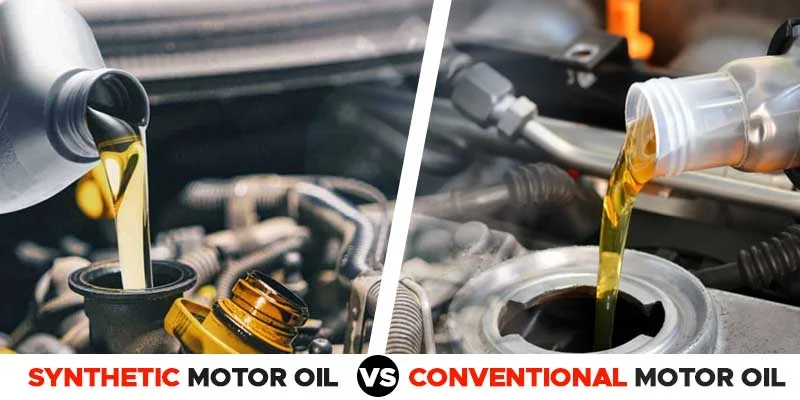
While most of the latest car models use synthetic oil, most oil vehicles are still on conventional motor oil. However, old cars can easily switch to synthetic oils. There is a consensus in the automobile industry that synthetic oil is more versatile and long-lasting than conventional motor oil.
Synthetic oil can last anywhere between 7500 to 10000 miles. Moreover, synthetic oil is cheaper than premium oil.
What Does an Oil Change Include?
The engine oil and oil filter should be replaced together. When you top-off the engine oil, the previous oil remains in the engine. As your old oil filter is consist of contaminants, replacing the old oil does not make any difference. When the new oil travels through the old dirty filter, it will come out along with contaminants.
An oil change service by the manufacturer includes the change of oil filters and the old filter oil. As the chassis is lubricated, these are the access points for the lubrication to enter the mechanical systems. To keep the suspension smooth, chassis lubrication is essential. Hence it should not only be restricted to the oil change.
Should I Change the Oil Filter Every Oil change?
Yes! You must change the oil filter with every oil change if you find the filters to be clogged and extremely dirty. If the oil filter is partially contaminated, you can continue to use till it is extremely clogged.
How Often Should I Change My Oil filter?
It is recommended to check the oil filters before an oil change. It is the most efficient way to do this. It usually includes 10,000 km for petrol vehicles and 15,000 km for diesel vehicles. Please see the manufacturer’s manual if you need additional information on service times.
Here are some of the reasons why oil filter replacements are recommended as per manufacturer recommendations:
To bring down the maintenance cost
The overall engine maintenance cost gets lowered significantly when you change the oil and oil filter as per manufacturer recommendation. A new engine oil cost you a fraction of the damaged engine due to the contaminants.
To Reduce Engine Wear.
As the contaminants build over time in the oil filter, the capacity of the oil filter to filter out these contaminants diminishes over the period. Once the filter is completely clogged, the passage oil can be obstructed, and the purified oil will not enter the engine.
Most oil filters prevent catastrophic engine failures due to clogged oil filters. The bypass valve will allow the oil without passing through the clogged filter. The engine receives the lubrication, but the unfiltered oil will bring the contaminations along, causing rapid wearing off in the engine.
To prevent the New Oil Soiling.
Once you replace the oil without replacing the filter, the oil filter contains the contaminants. Once the new oil passes through these contaminated filters, the oil turns dirty.
Full flow filtration
In modern vehicles, the engine is the first line of defense as the oil goes from reservoir to engine via the filter.
Does a Bad Oil Filter Show any Signs?
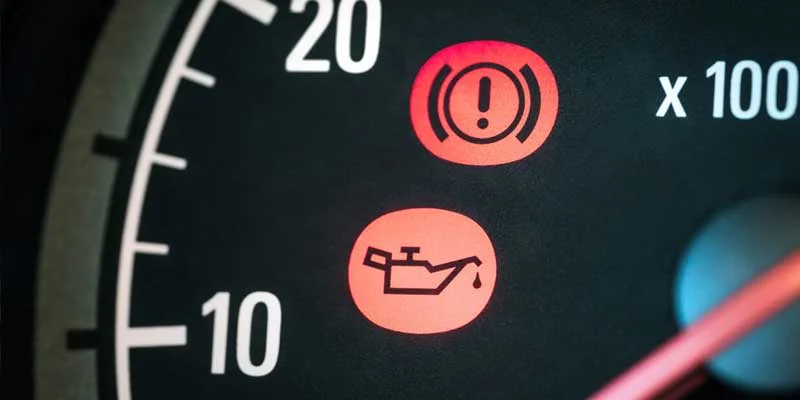
If your car needs an oil filter change, check out for the symptoms below:
Driving in Severe Conditions
Suppose you are driving under severe conditions like high zone traffic, extreme weather, or towing a heavy load. In that case, your vehicle needs to change the oil filters more frequently than the manufacturer’s recommendation. As the engine works harder, more frequent maintenance for the internal components is required.
Service Engine Light Indicator
There is a multitude of reasons why the engine service light illuminates. However, one of the probable reasons is that the engine is not working well, and there are many contaminants in the engine, which indicates that the oil filter needs to be changed.
The latest engine comes with an oil change indicator light and oil pressure warning light.
How long do filters last?
There are several factors attributes to decide the oil filter life. Driving into harsh conditions and mileage, you should change the oil filter. With every oil change, it is recommended to change the filters.
Frequently Asked Questions
How many miles can an oil filter last?
Changing your oil filter frequently is no longer the industry standard in most modern high-performance motor systems. All vehicles vary, but most automakers recommend 7500 miles and more intervals.
Can I change oil without changing the oil filter?
Yes, you can do that, and it is cost-effective when the oil filter has not deteriorated completely. However, the new oil will get dirty the moment you will start the engine as it will pass from the dirty filters,

My Name is Christopher Angels, and I am a postgraduate in mechanical engineering. Cars have always excited me as a child, and soon I decided to dive into the world of cars by pursuing mechanical engineering. I also worked as a Mechanic for over 3 years to understand Cars’ anatomy and how each part contributes to its working.
My Name is Christopher Angels, and I am a postgraduate in mechanical engineering. Cars have always excited me as a child, and soon I decided to dive into the world of cars by pursuing mechanical engineering. I also worked as a Mechanic for over 3 years to understand Cars' anatomy and how each part contributes to its working.

